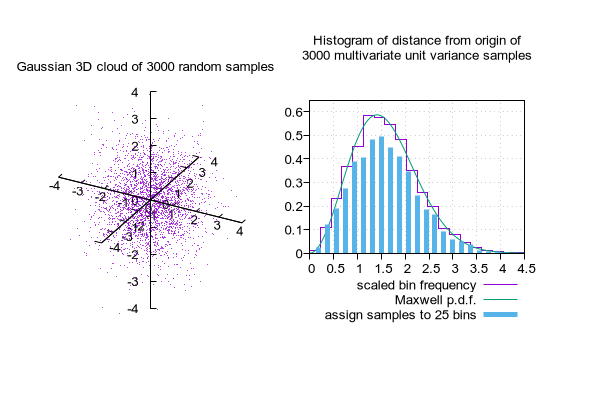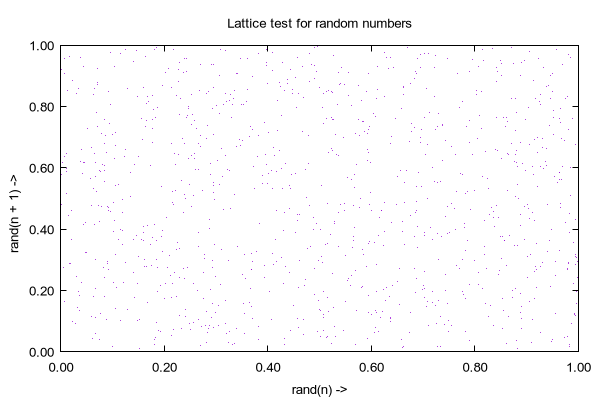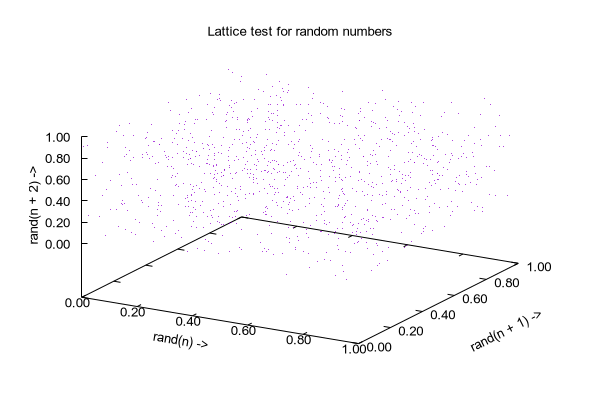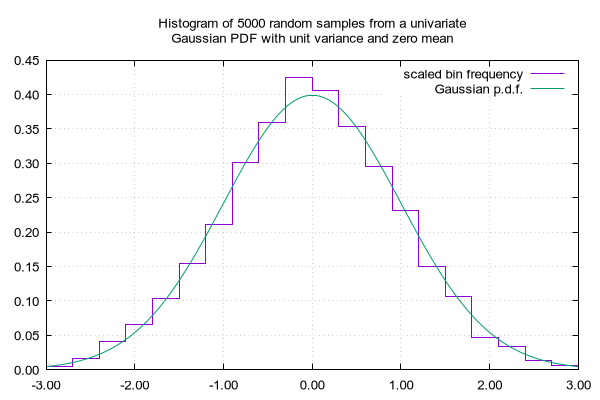
|
print ""
print "Another Monte Carlo simulation"
print ""
print "This is similar to the previous simulation but uses multivariate"
print "zero mean, unit variance normal data by computing the distance "
print "each point is from the origin. That distribution is known to fit"
print "the Maxwell probability law, as shown."
print ""
undefine $random
load "gen-random.inc"
#
oneplot = 1
#
if (oneplot) set multiplot layout 1,2
#
unset key
rlow = -4.0
rhigh = 4.0
set parametric
set xrange [rlow:rhigh]; set yrange [rlow:rhigh]; set zrange [rlow:rhigh]
set xtics axis nomirror; set ytics axis nomirror; set ztics axis nomirror;
set border 0
set xyplane at 0
set xzeroaxis lt -1
set yzeroaxis lt -1
set zzeroaxis lt -1
set view 68, 28, 1.4, 0.9
tstring(n) = sprintf("Gaussian 3D cloud of %d random samples\n", n)
set title tstring(nsamp) offset graph 0.15, graph -0.33
splot $random every :::::0 with dots
if (!oneplot) pause -1 "Hit return to continue"
unset parametric
unset xzeroaxis; unset yzeroaxis;
set border
set grid
set samples 200
set size 0.47,0.72
set origin 0.44,0.18
tstring(n) = sprintf("Histogram of distance from origin of\n%d multivariate unit variance samples", n)
set title tstring(nsamp) offset graph 0, graph 0.15
set key bmargin right vertical
xlow = 0.0
xhigh = 4.5
binwidth = 20
scale = (binwidth/(xhigh-xlow))
set xrange [0:xhigh]
set yrange [0:0.65]
bin(x) = (1.0/scale)*floor(x*scale)
plot $random using (bin(sqrt($1**2+$2**2+$3**2))):(1.0*scale/nsamp) every :::::0 smooth frequency with steps \
title "scaled bin frequency", \
maxwell(x, 1/sqrt(2)) with lines title "Maxwell p.d.f.", \
$random using (sqrt($1**2+$2**2+$3**2)):(scale/nsamp) bins=25 binrange [xlow:xhigh] with impulse lw 5 title "assign samples to 25 bins"
#
if (oneplot) unset multiplot
#
Click here for minimal script to generate this plot
|





